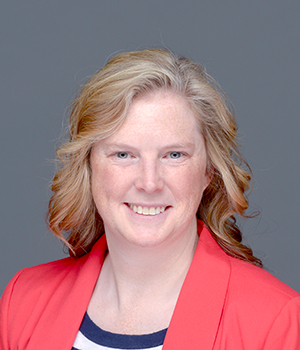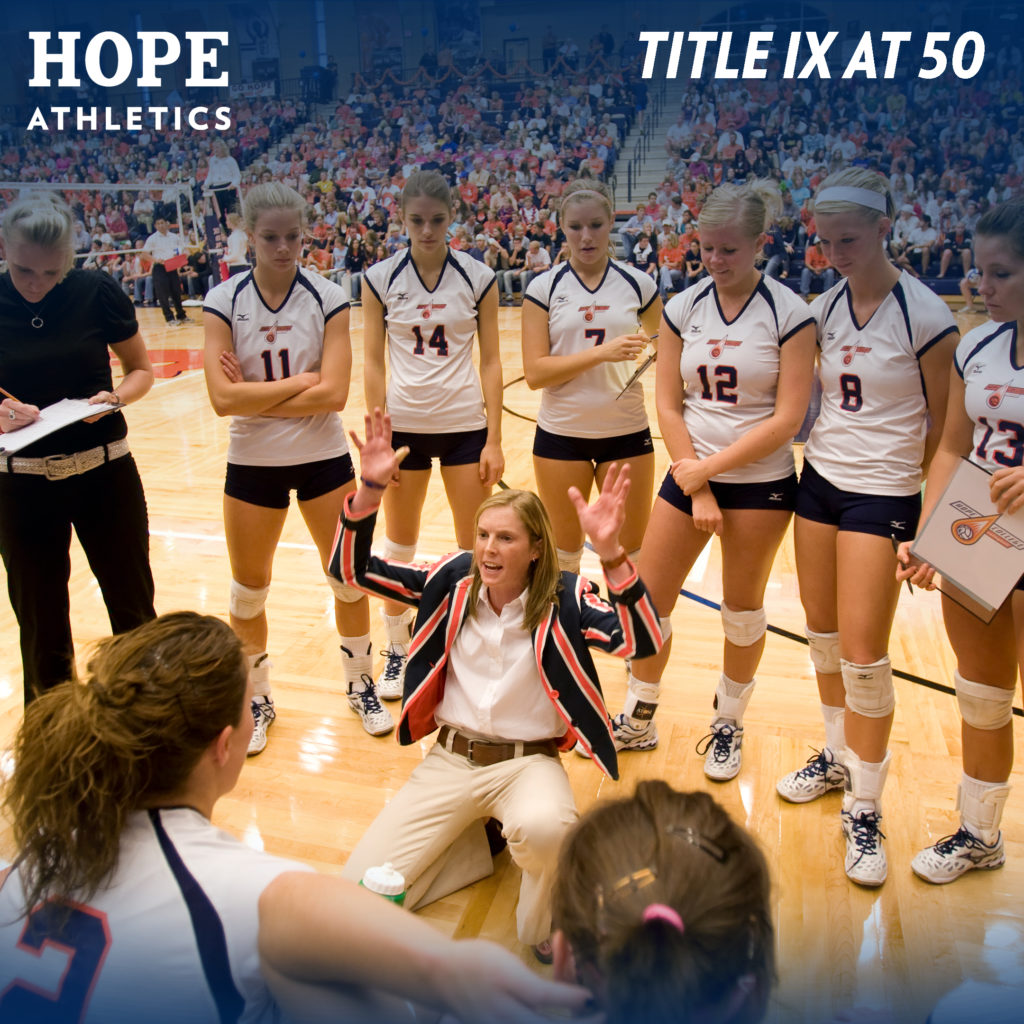Editor’s Note: On June 23, 1972, a federal civil rights law was passed that prohibited sex-based discrimination in any educational institution that receives federal funding. Title IX also gave girls and women the equal opportunity to compete in sports across the country.
To commemorate the 50th anniversary of Title IX’s passing next summer, Hope College Athletics will share the memories and perspectives from Hope College student-athletes, coaches, and alumnae on the 9th of each month during the school year. In our first installment, we hear from Hope College Volleyball head coach Becky Schmidt ’99. The Flying Dutch’s first volleyball All-American also received an NCAA Postgraduate Scholarship as a student-athlete. In 2014, Schmidt guided her alma mater to its first national title in NCAA Division III volleyball.
—

In 1988, I was in the eighth grade and saw a sign posted in the school hallway announcing tryouts for the school’s soccer team. At the time, I loved soccer and eagerly awaited the tryout opportunity. As I arrived in the gym after school for tryouts, I waited in line with all of the other kids trying out for the team.
I was the only girl in the line. Apparently, it hadn’t occurred to the administration to designate the tryouts as being for the boys team. I hung around for a little while but after dealing with some taunting and mocking from the boys in line I decided it wasn’t worth it. I walked the hallways of the school and cried. A principal at the school saw me and asked what was wrong. I managed to muster an explanation through my tears of disappointment.
What does Title IX mean to me? It means opportunity — the chance to compete in a sport that has given me some of my best friends and taught me countless lessons about perseverance, toughness, teamwork, and leadership. It means knowing that my teammates and I matter — that our passion and interests were as worthy as anyone else’s. It means appreciating the courage and drive that so many women before Title IX showed as they pursued their dreams despite inequitable challenges. It means helping to make sure that today’s female student-athletes never take for granted the amazing opportunities they have in front of them.

I like to think that if I’d been born 20 years earlier, I would have been one of those pioneering women who fought against the inequities experienced by so many female student-athletes (or women who wanted to join science clubs as Title IX protects access to all educational opportunities).
The year after I ran away from that soccer tryout our school started a girls soccer team. It wasn’t because I started a campaign or led any protests. It wasn’t because my parents complained until more opportunities for girls were available at the school. That middle school added a girls soccer team the next year because the process of developing Title IX and enforcing it had changed the lens through which our school administrators saw educational opportunities for girls — and when there was an unmet need they felt compelled to act. It didn’t take the threat of a lawsuit, but there is not a doubt in my mind that it was the law that helped change the way women’s sports were valued.
In 2014, we took the Hope Volleyball team to compete in a tournament in Washington DC. We were able to spend a morning touring the National Archives and one of the documents we came across was the original draft of Title IX.
When I saw it, my mind took me right back to that hallway in middle school and my eyes filled with tears. But this time it was also accompanied by a smile reflecting how thankful I am for how far we have come.


Thank you, Becky, for sharing that story. Your passion, heart, and desire to treat all equitably would definitely have led you to be one of the women who fought for equality if you had been born 20 years sooner!